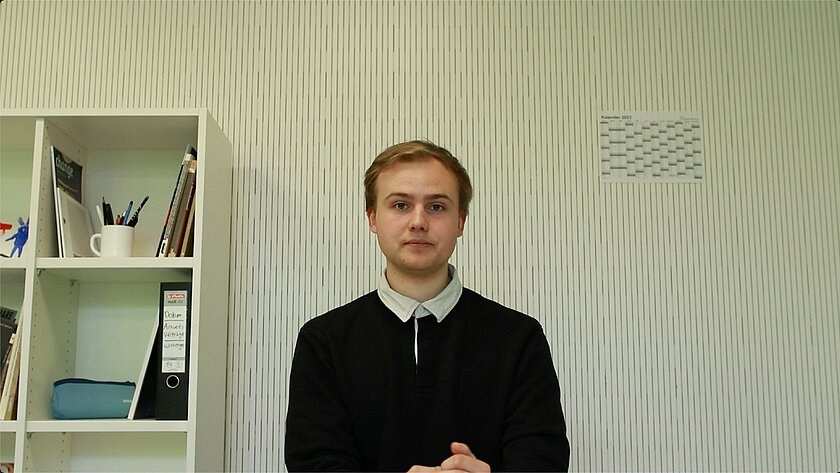The experimental study builds on existing research - including that of co-author Nicolas Roulin (Saint Mary's University, Halifax) - on discrimination in technology-assisted interviews and supplements this with a German sample. For this purpose, Prof. Dr. Johannes Basch, together with Roulin and the three HNU students Josua Gläsner, Raphael Spengler and Julia Wilhelm, used different video backgrounds: on the one hand a background with visible references to an affiliation to Islam (e.g. via the image of a mosque) or to homosexuality (e.g. via a rainbow flag), and on the other hand a neutral background without these visual references. In this way, the effects on HR managers could be directly compared.
References to affiliation with Islam or homosexuality can have a negative impact
The results: Visible indications of belonging to Islam can lead to applicants' competence (in the case of the study: a male applicant) being perceived as lower - however, the visual indications had no effect on the perception of warmth or interview performance. Overall, references to homosexuality had no direct influence on the applicants' perception.
In addition, personal attitudes of the evaluators - for example their intrinsic religious orientation or their attitude towards homosexuality - influenced the evaluations of the candidates: The researchers were able to show that a non-Muslim religious orientation was negatively associated with the evaluation of the Muslim applicant and a negative attitude towards homosexuality was negatively associated with the evaluation of the homosexual applicant.
In times of advancing digitalization, technology-supported job interviews are becoming increasingly popular. However, as the study proves, video interviews - apart from technical complications such as a shaky internet connection or a poor webcam - also harbour the risk that insights into the private spaces of candidates can become a stumbling block or even lead to discrimination against marginalized groups, even though the revealed characteristics have nothing to do with the professional suitability of the applicants.
Conclusion for practice: watch out for hidden prejudices, conduct structured interviews
What practical recommendations can be derived from this? For the time being, the safest way for applicants to avoid possible discrimination is to rely on a neutral background in technology-supported interviews. HR managers, on the other hand, should work with structured interviews and rating scales, as these prevent bias. And for everyone: it is advisable to be vigilant with regard to (hidden) prejudices and to critically question your own biases.
*two-spirit, lesbian, gay, bisexual, transgender, queer, questioning or intersex
To the publication
Basch, Johannes M.; Roulin, Nicolas; Gläsner, Josua; Spengler, Raphael; Wilhelm, Julia (2024): How different backgrounds in video interviews can bias evaluations of applicants. In: Int J Selection Assessment, article ijsa.12487. Online at: onlinelibrary.wiley.com/doi/10.1111/ijsa.12487
Contact
Prof. Dr. Johannes Basch







